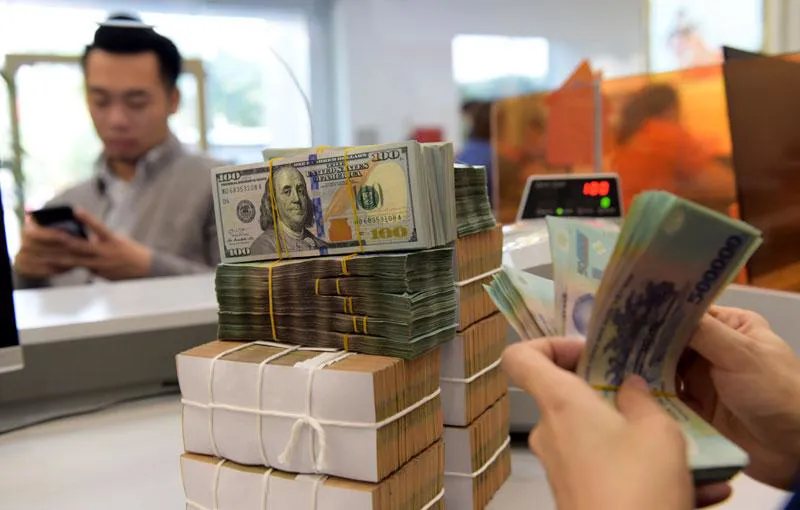Corporate bond issuance in Vietnam declines sharply in Q1
While there was a turbulent period, it is expected the market to become more transparent and sustainable in the long term.
Vietnam's total value of corporate bond issuance in the first quarter was estimated at VND45.3 trillion (US$1.97 billion), down 85% against the previous quarter but up 48.3% year-on-year, according to securities company VnDirect.
| Real estate companies continue to make up the largest portion of bond issuance in the first quarter. |
Upon breaking down, private placement made up the majority of the issuance at 87%, with the remaining being proceeded via the public listing.
VnDirect’s report noted a total of 40 companies issued corporate bonds of VND39.4 trillion ($1.7 billion) via private placement, up 67.2% year-on-year, but down 86% quarter-on-quarter.
The biggest issuers among the lot were Tuong Khai Construction and Investment Company (VND6 trillion), Minh Truong Phu Construction (VND5.9 trillion), and Vietnam International Commercial Bank (VND4 trillion), and Eagle Side Development and Investment (VND3.4 trillion).
Nearly VND6 trillion ($261 million) worth of corporate bonds was issued via public listing during the first quarter, down 15.7% year-on-year and 68.8% quarter-on-quarter, with names such as BIDV (VND2.2 trillion) and LienVietPostBank (VND1.7 trillion).
VnDirect noted there has been a declining trend in corporate bond issuance via private placement, with the figures decreasing from VND27 trillion in January to VND8.2 trillion in February and VND4.1 trillion in March.
“This was due to the effectiveness of circular No.16 of the State Bank of Vietnam becoming effective since January 15, 2022, which sets stricter regulation for credit institutions in transactions related to corporate bonds,” it noted.
Real estate companies continue to make up the largest portion of bond issuance with 40.2% of the total value in the first quarter, or VND15.8 trillion, up 25.2% year-on-year but down 86.5% quarter on quarter.
The construction and finance-banking sectors claimed the second and third spots with 34.8% and 18.8% respectively.
Corporate bond market to keep a low profile in coming months
In March, the Government took strong measures to restore the order of the corporate bond market, including the arrest of Tan Hoang Minh Chairman Do Anh Dung for fraud in the process, seen as a necessary step to ensure its healthy development in the future.
On April 7, Prime Minister Pham Minh Chinh issued a directive No.304 urging continued efforts in stabilizing the corporate bond market and addressing possible loopholes in existing regulations.
VnDirect expected the corporate bond market to keep a low profile in the upcoming quarters, as the participants are waiting for changes in policies that would take effect in the coming time.
“Investors would need time to review the situation before making any investment decision,” it said.
Meanwhile, the report suggested the capital inflows would now shift to companies operating in essential businesses, rather than in the real estate market.
“The Government’s push for public investment may see growing demand for capital from those in this field,” it added.
While there was a turbulent period, VnDirect expected the market to become more transparent and sustainable in the long term.
“The corporate bond market remains a key capital mobilization channel for businesses and the economy,” VnDirect noted.
By 2025, the Government targets the corporate bond market to reach 20% of the GDP and 25% by 2030, which currently stands at 17-18%.
There would be a higher demand for capital from businesses to expand operations, thanks to the positive outlook of the economy with estimated GDP growth of 6.5-7% in the 2022-2025 period.
Meanwhile, a transparent and professional market resulting from changes in policies would further attract capital inflows in long term, and truly become a medium- and long-term sustainable investment channel.












